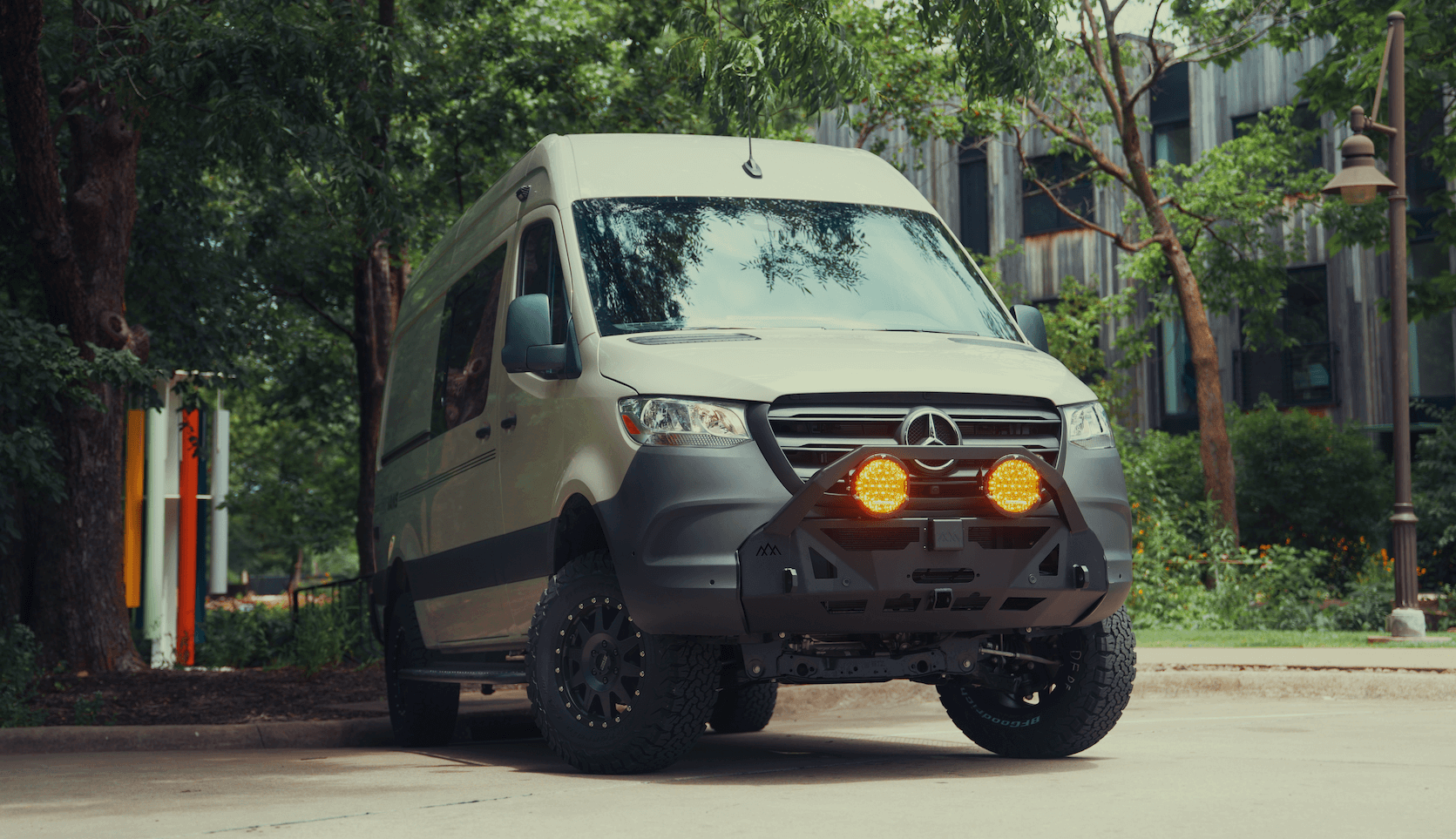Recreational Vans

A camper van blends daily driving manners with the essentials of a tiny home. You get a bed that converts to seating, a compact galley, secure storage for clothing and gear, and climate solutions sized for a small cabin. The appeal is straightforward. Park where you want, sleep comfortably, and keep food and power organized so travel feels simple rather than makeshift. Unlike larger motorhomes, a camper van can fit in many city spaces, navigate tight trailheads, and use standard fuel stations without drama.
The most common base platforms are the Mercedes Sprinter, Ford Transit, and Ram ProMaster. Each offers different body lengths and roof heights to match interior headroom and storage goals. Diesel or gas engines, rear or all wheel drive, and factory options like swiveling seats can shape how the space functions. Before anything else, match the platform to your terrain, climate, and payload needs. A well matched platform sets the stage for a safe, quiet, and efficient cabin.
Layout drives comfort more than any single component. Start by mapping your daily flow. Where do you cook, change, work, and sleep. How do wet shoes move through the space without touching bedding. Where do bikes, boards, or a motorcycle ride without clashing with living space.
Fixed bed versus convertible bed
Galley choices
Bathroom approaches
Seating and work
Pack heavy items low and near the axle to protect handling. Ventilation over the galley and bed area keeps moisture in check. Soft close latches, padded edges, and durable finishes matter more than they do in a house because vibration and motion are constant.
Mattress thickness and ventilation rails under the bed platform prevent condensation. Blackout window covers preserve privacy and improve insulation. Sound deadening behind wall panels reduces fatigue on long drives.
Size water storage to your habits. Many travelers settle around twenty to thirty gallons of fresh water with a gray tank sized to local regulations. A twelve volt pump, inline filter, and quick access drain simplify maintenance. A stainless sink with a pull down faucet eases cleanup in a compact footprint.
Roof fans drive airflow through screened windows for mild weather. For heating, diesel fired air heaters offer efficient output from the vehicle tank and sip power. For cooling, a twelve volt air conditioner can maintain sleep friendly temperatures if the battery bank and alternator charging are sized correctly. Shade awnings and insulated window coverings cut thermal load before you ever touch a switch.
Modern camper vans rely on a lithium battery bank managed by a quality battery management system. Power planning starts with a load audit. Add up daily watt hours for cooking, refrigeration, laptops, fans, lights, and climate support. Then size batteries so you have reserve for cloudy days and unexpected delays.
Batteries and charging
Inverter and distribution
Safety
Respect the gross vehicle weight rating and axle limits. Weigh the van after the build with water and gear on board. Seatbelts must tie into approved anchor points. If you add extra seats, make sure they meet safety standards. Store heavy gear low to control center of gravity.
Vans flex and vibrate. Use threaded inserts and rivet nuts where service access matters. Choose latches that cannot open on rough roads. Keep plumbing accessible behind removable panels. Plan for filter replacements and periodic battery checks. A tidy electrical diagram and labeled wiring save headaches later.
Quality materials and clean execution pay off in quiet rides and fewer rattles. Timelines vary with scope and supply chains. Resale value follows trusted platforms, documented work, and serviceable systems. Tasteful finishes and versatile layouts appeal to more buyers if you plan to sell later.
Once you know how you travel, a professional shop can translate goals into a balanced layout, sized power, and clean execution. A shop with fabrication capabilities can solve tricky storage, integrate roof and rear carriers, and deliver cabinets that stay tight after thousands of miles. Build support matters as much as the spec sheet. You want clear documentation, warranty support, and a handoff process that teaches you how to use every system with confidence.
OZK Customs designs and builds purpose built camper vans that match real world use. From adventure ready layouts for riders and climbers to long range off grid cabins with quiet climate control, the focus is simple. Listen first, build second. If you need a complete custom build, see the process and examples on our custom van page at custom camper van builds. If you want a platform that aligns with financing and book value, explore our approach to practical platforms here mainstream adventure vans. To understand our broader capabilities and get ideas for your own road map, start at recreational adventure vans.
Tell us how you travel and we will turn that plan into a reliable camper van that feels dialed on day one. Reach out for a design consultation and a transparent build path that covers layout, power, storage, and service. We will prepare a proposal and schedule that fits your timeline so you can focus on the miles ahead.
Ready to turn a clear plan into a dependable camper van built for your miles, seasons, and gear. Share your goals and we will propose a tailored layout, power system, and finish package. Start with a design consult and get transparent timelines and pricing from OZK Customs.
ADDRESS:
6159 E Huntsville Rd, Fayetteville, AR 72701
PHONE:
(479) 326-9200
EMAIL:
info@ozkvans.com